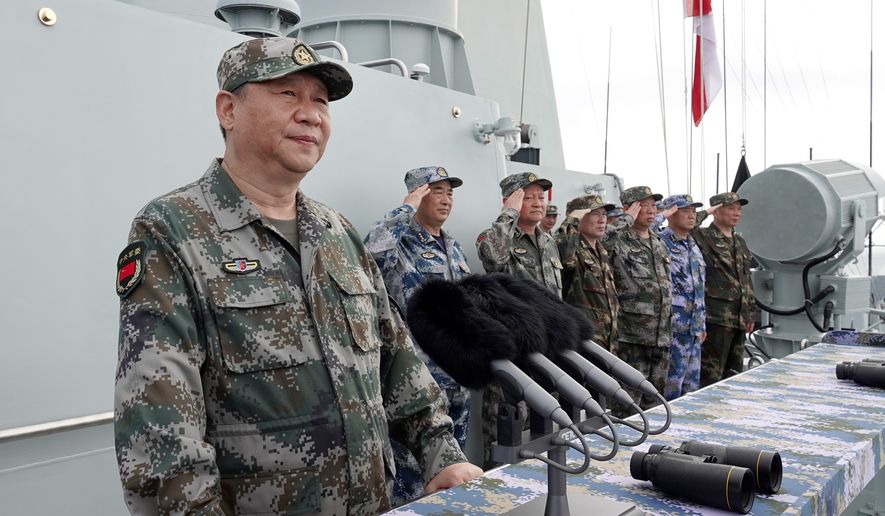Secretary of Defense Mark Esper hammered home China’s position as the number one adversary of the United States during a speech on Wednesday at the RAND Corporation in California.
The Pentagon has instituted a new defense policy office specifically focused on China and set up a strategy management group to better integrate the effort. He also told National Defense University officials to dedicate half of its academic course work to China.
“I tasked the military services to make China the pacing threat in all of our schools, programs and training,” Mr. Esper said.
After two decades spent fighting extremist organizations in low intensity conflicts, the U.S. military is shifting its attention to the Indo-Pacific region. Not only because it’s a hub of global trade and commerce but also the epicenter of great power competition with China, Mr. Esper said.
“In the face of destabilizing activities from the People’s Liberation Army,” Mr. Esper said, “the United States must be ready to deter conflict and, if necessary, fight and win.”
While acknowledging that it would take years for China to match U.S. capabilities on the high seas, Mr. Esper said the Navy needs a future fleet that is “more balanced in its ability to deliver lethal effects from the air, from the sea and from under the sea.”
The fleet, Mr. Esper said, would be marked by “more and smaller surface combatants,” both manned and unmanned, unmanned carrier-based aircraft of all types along with a larger and more capable submarine force.
It must be “affordable in an era of tight funding; sustainable over the long term and operationally available at higher rates,” he said.
To meet that goal, the U.S. must increase funding for shipbuilding. Earlier this year, the Navy awarded a $795 million contract to purchase the first ship of a new class of guided missile frigates - with an option to purchase nine more for a total of $5.6 billion.
“This is the first new major shipbuilding program that the Navy has sought in more than a decade,” Mr. Esper said.
The United States is now at a major inflection point where unmanned technologies and long range, precision weapons will increasingly play a leading role, Mr. Esper said.
“The U.S. military — including the Navy — must adapt to that future as the character of warfare changes,” he said.
• Mike Glenn can be reached at mglenn@washingtontimes.com.




Please read our comment policy before commenting.